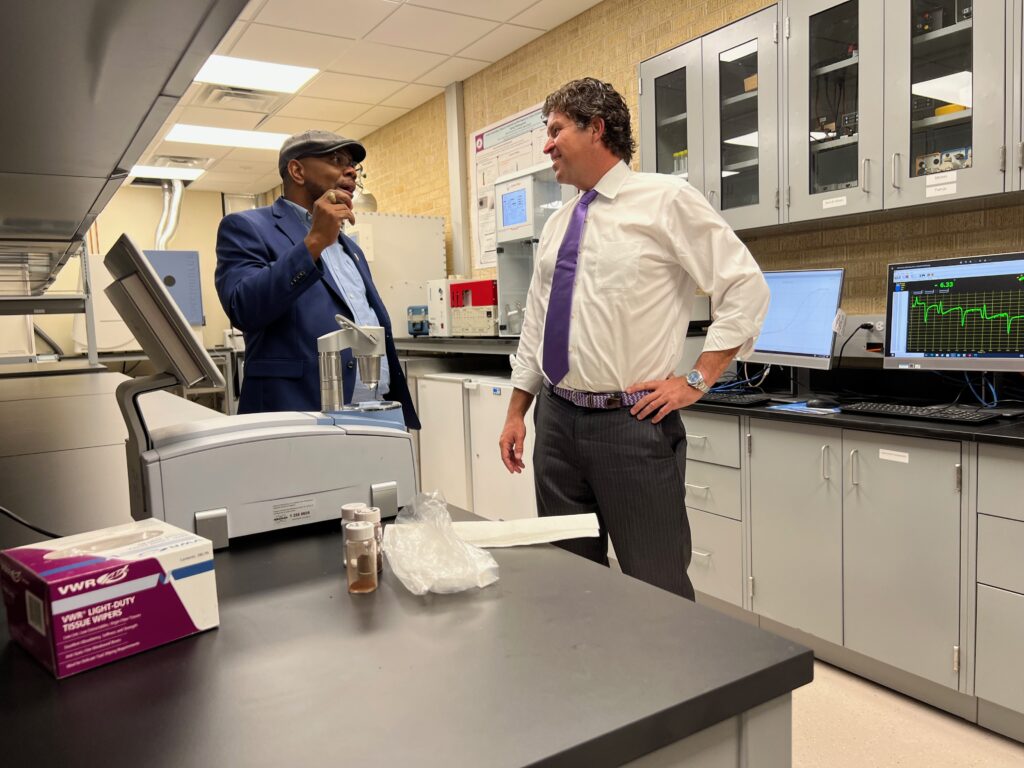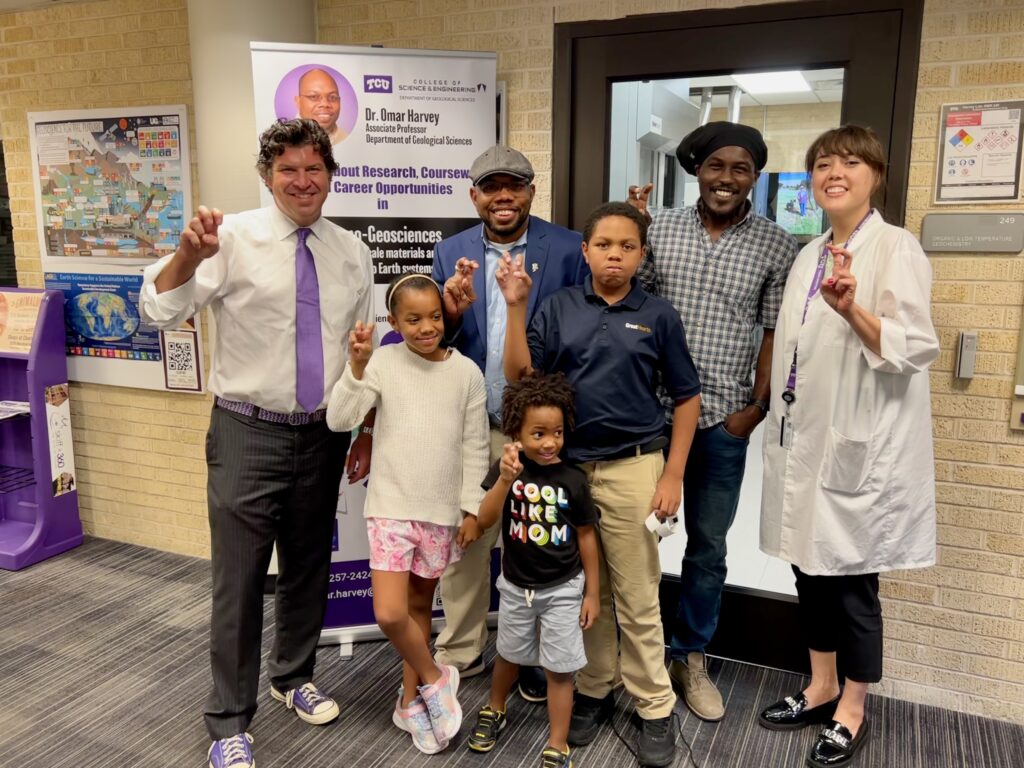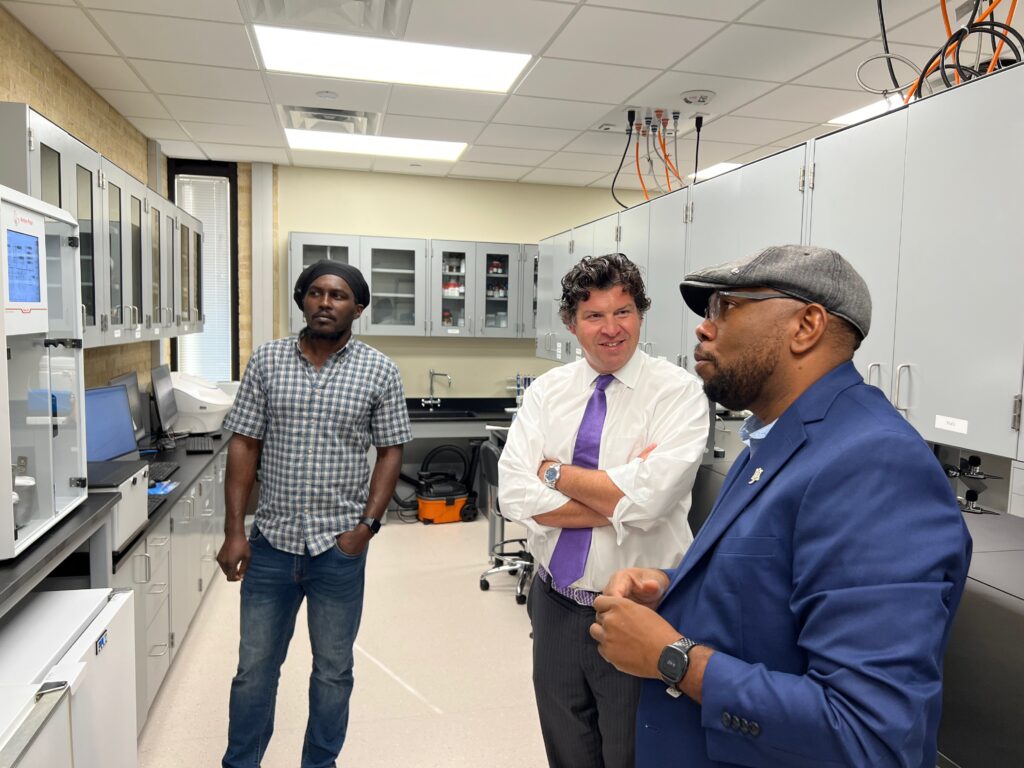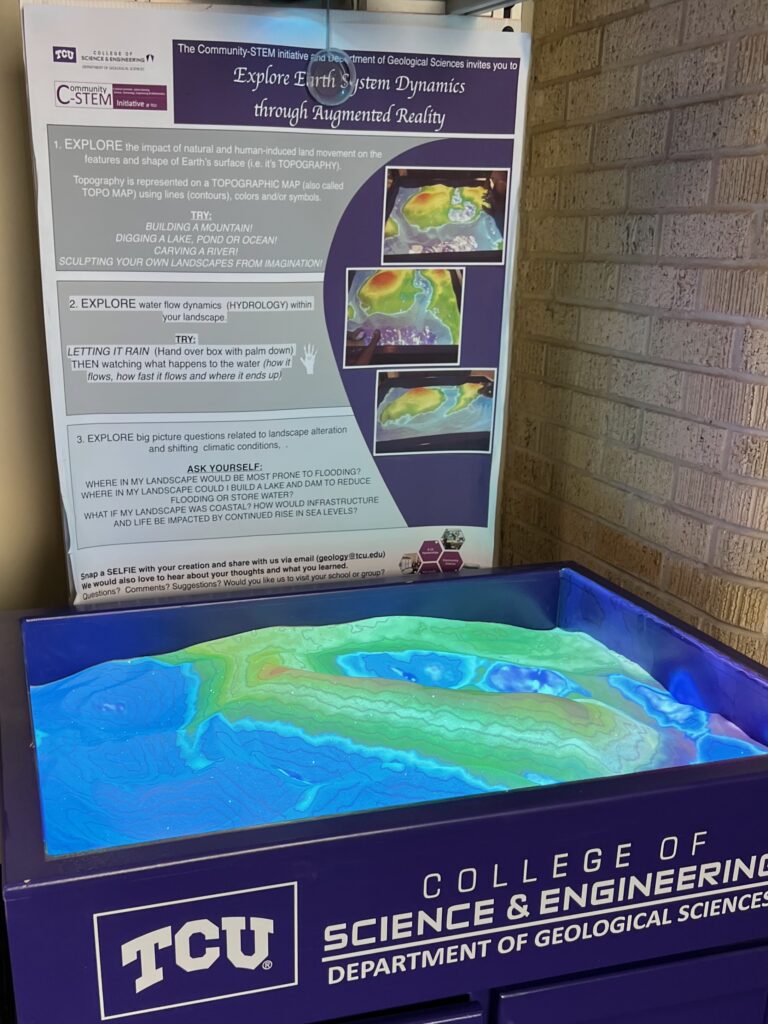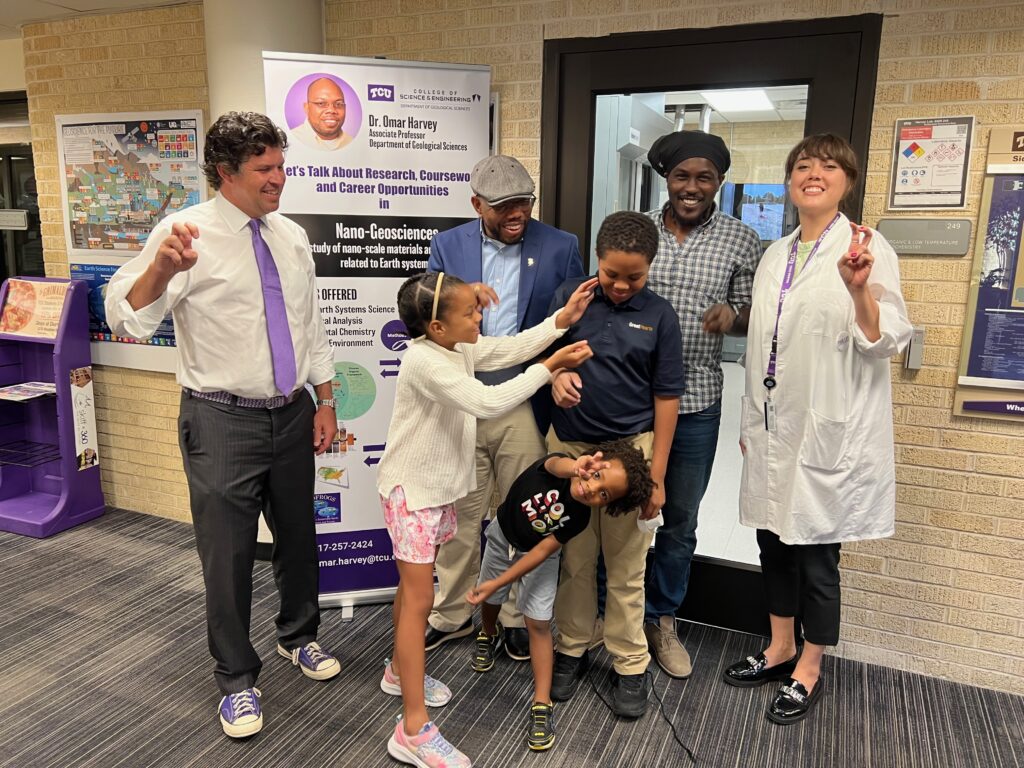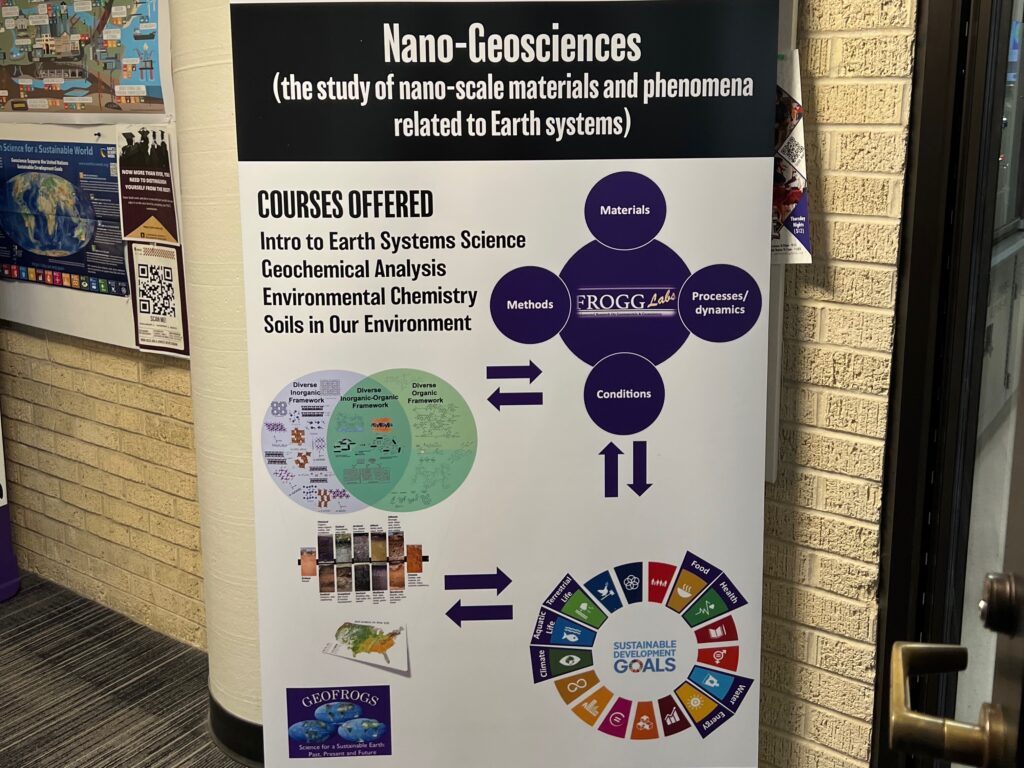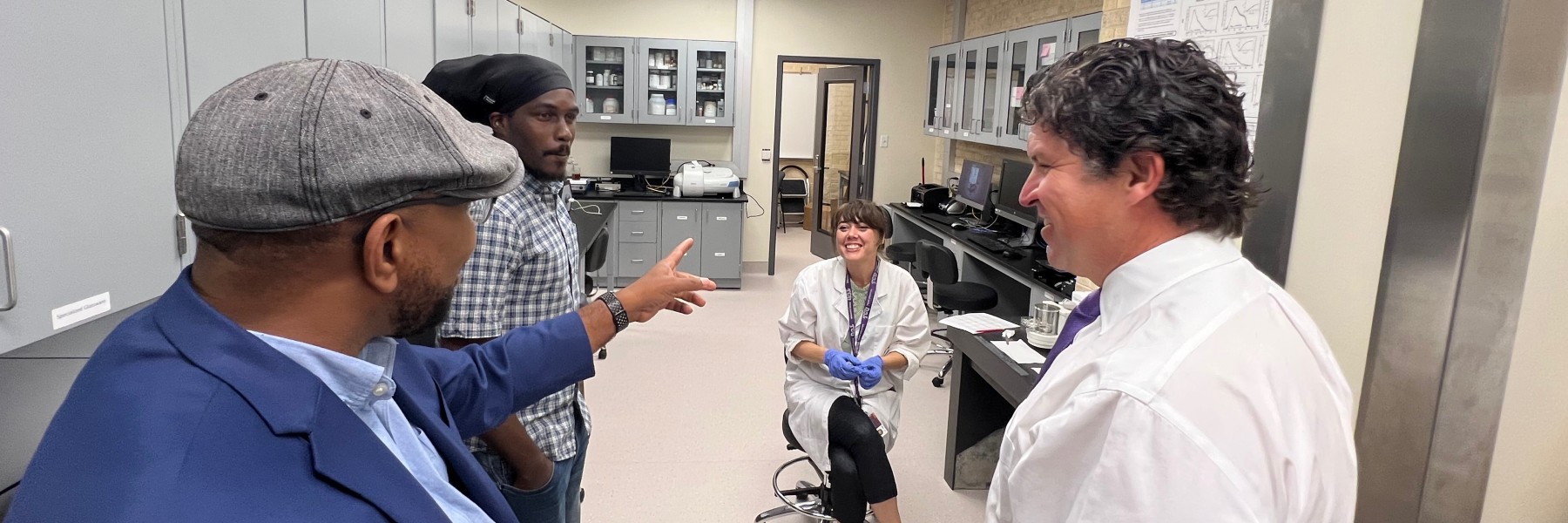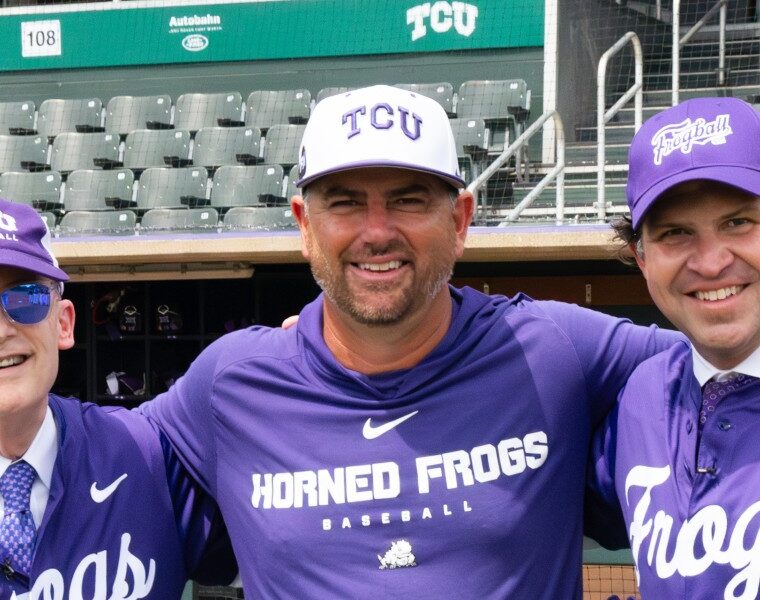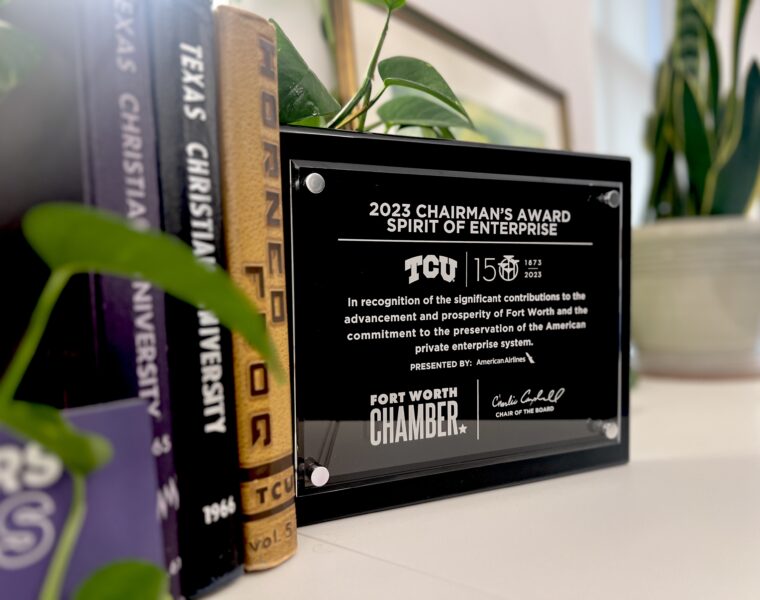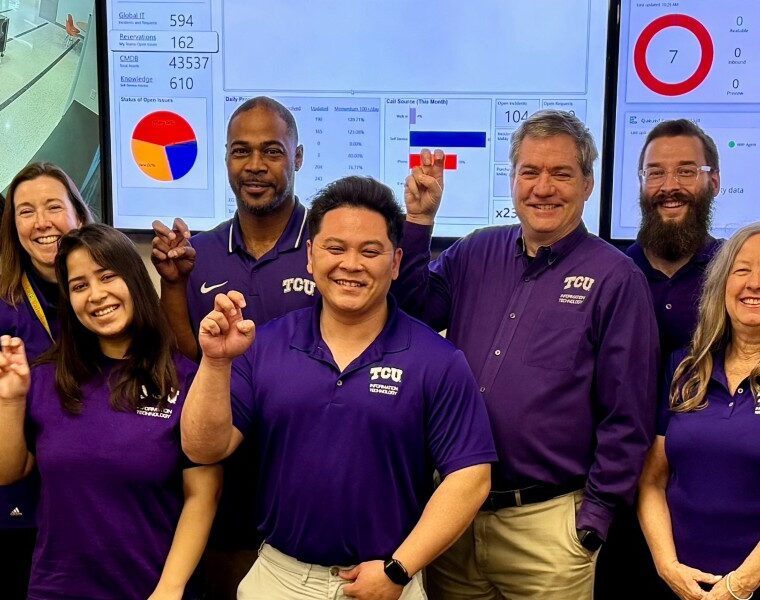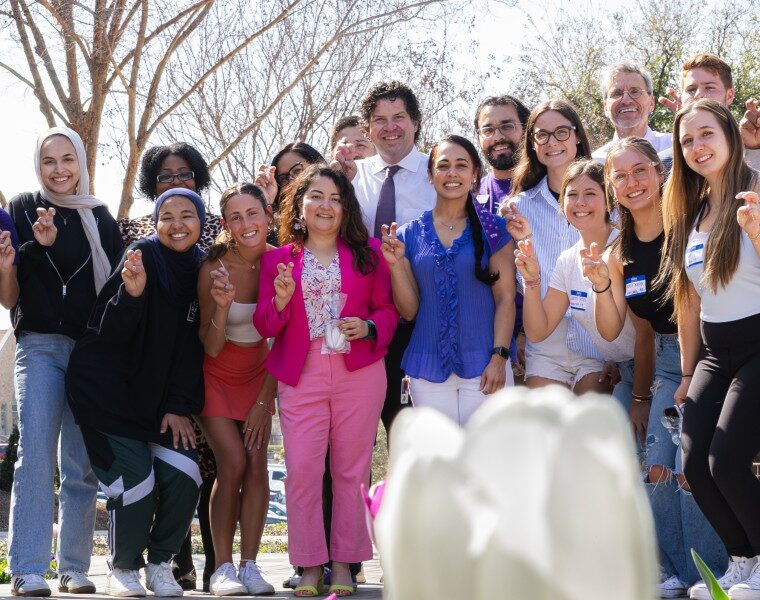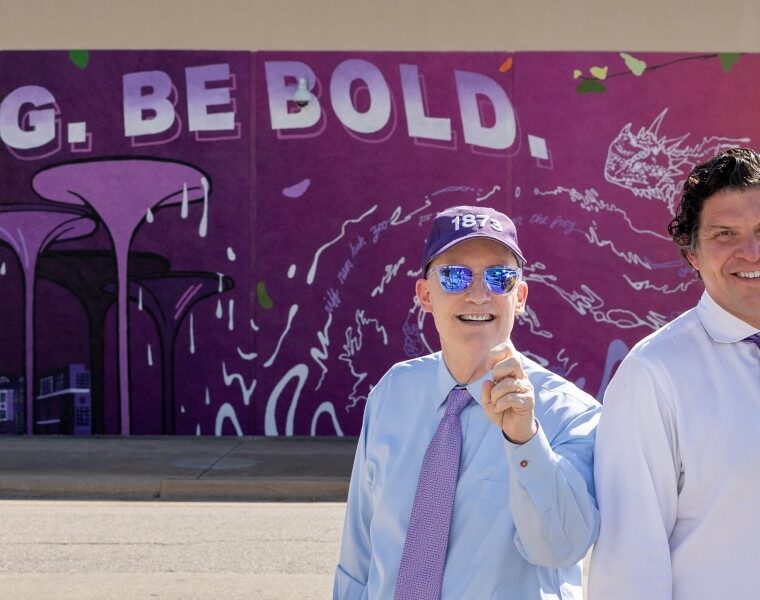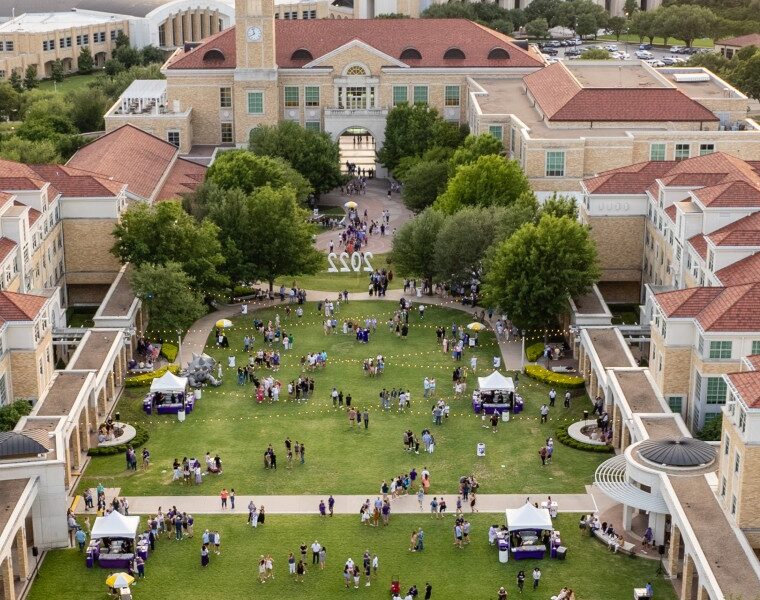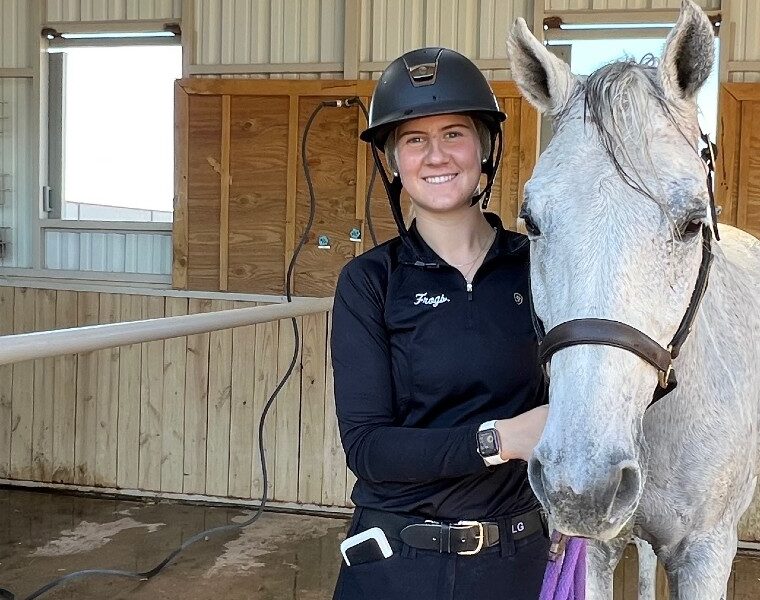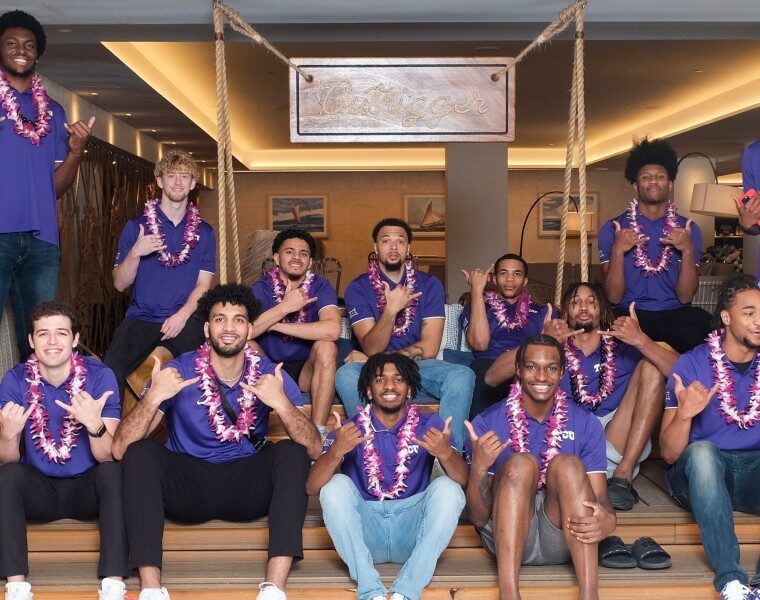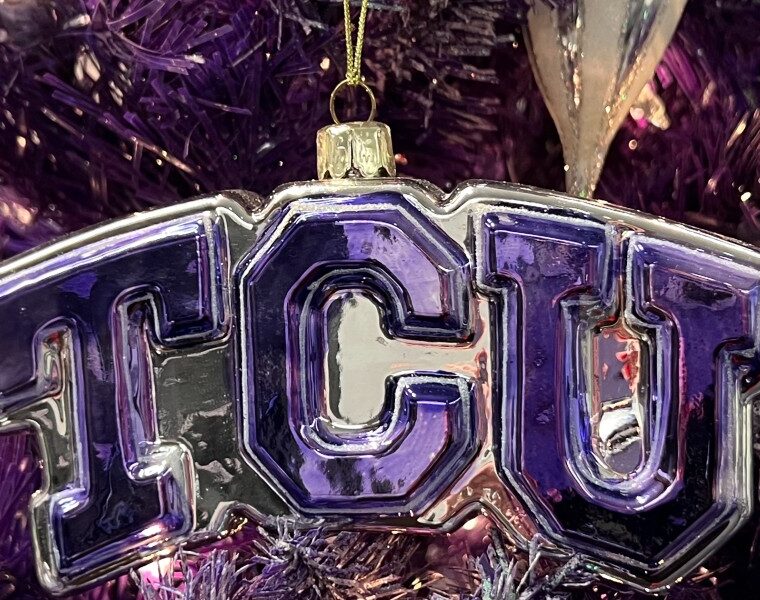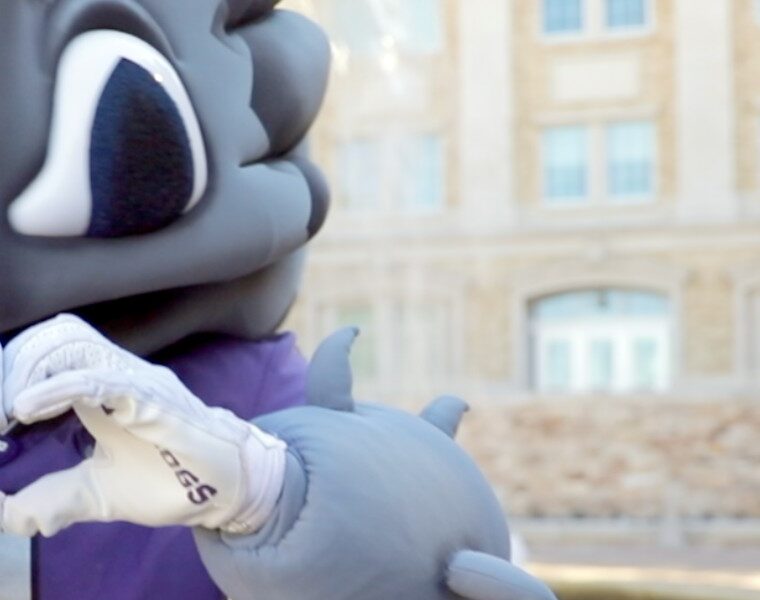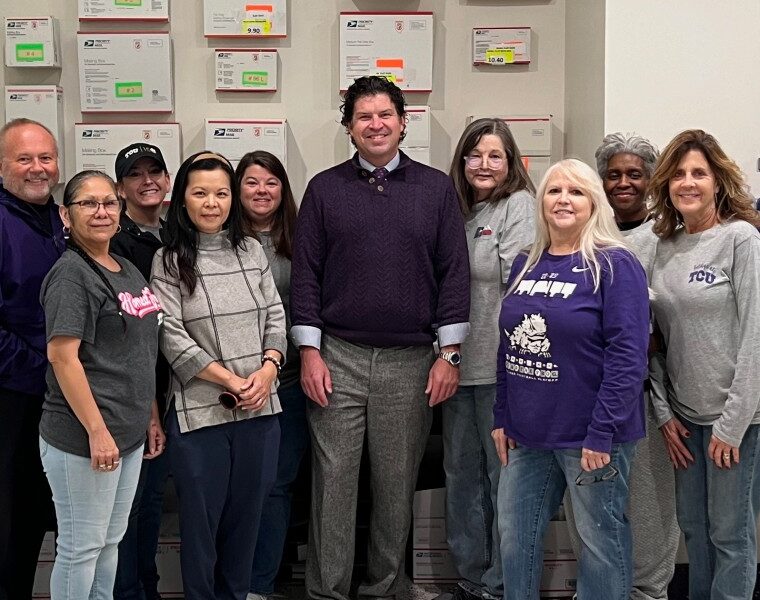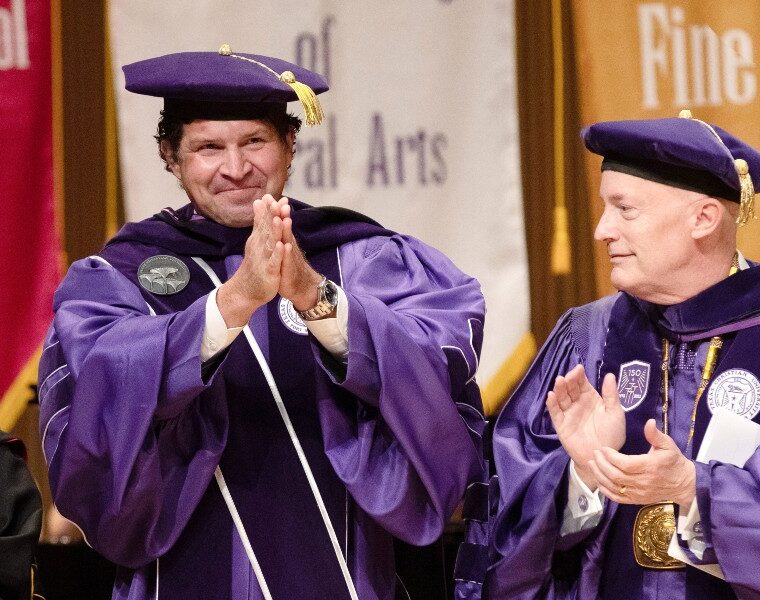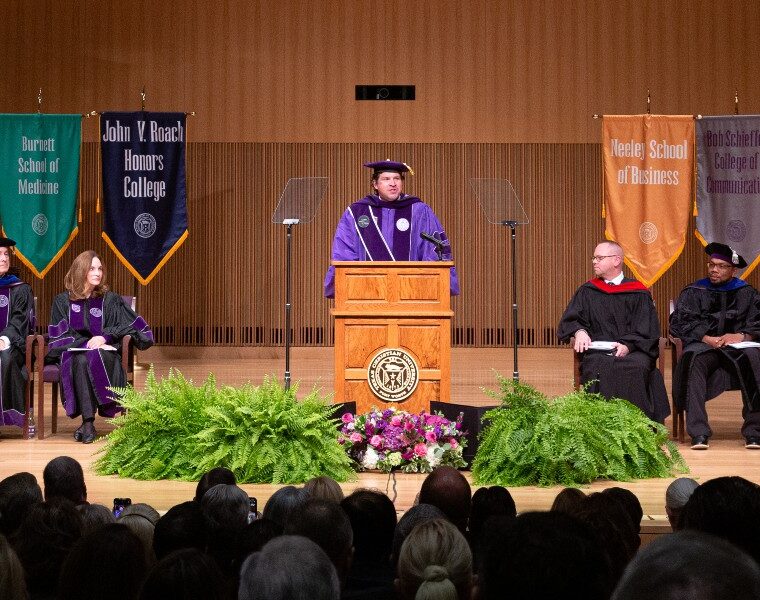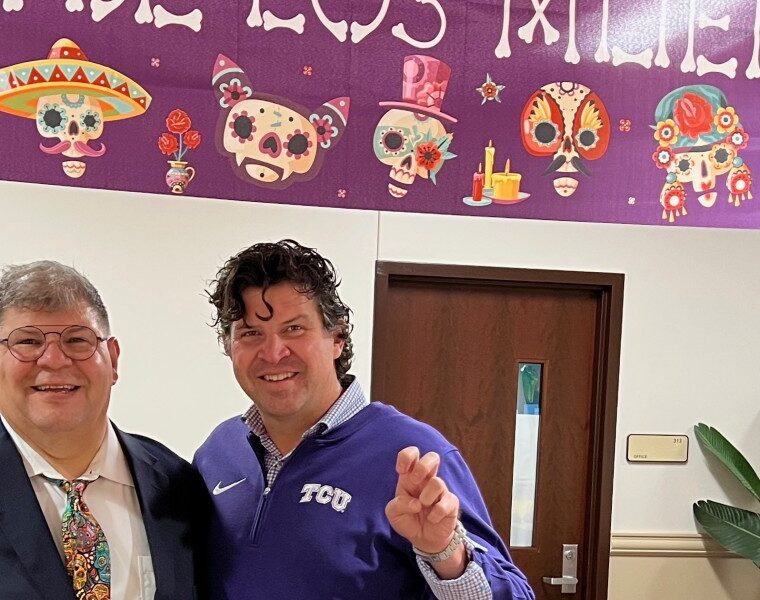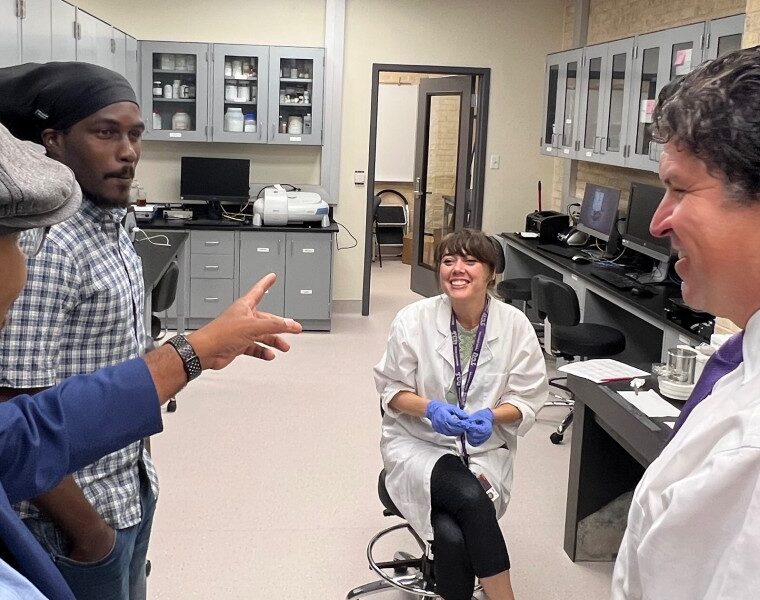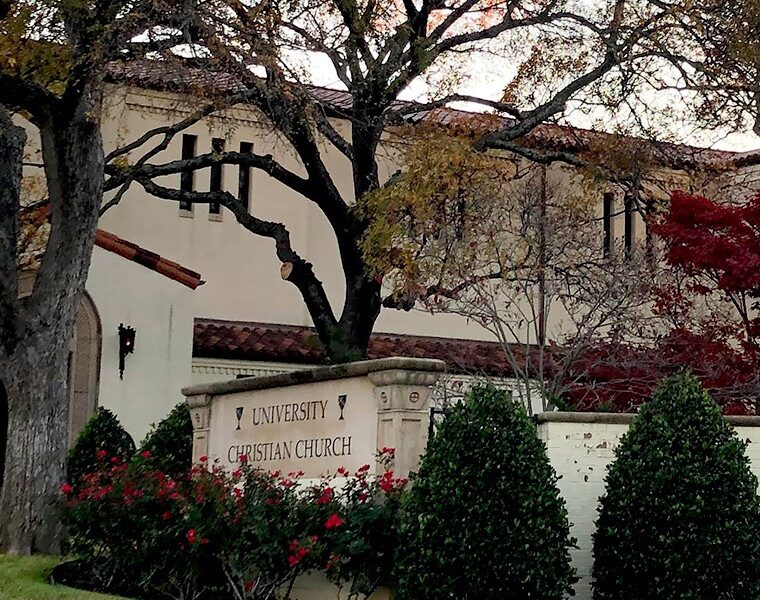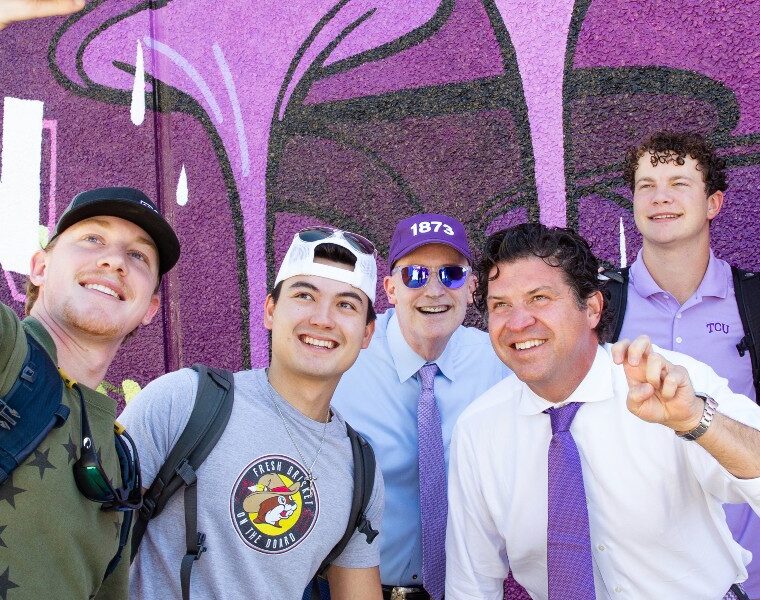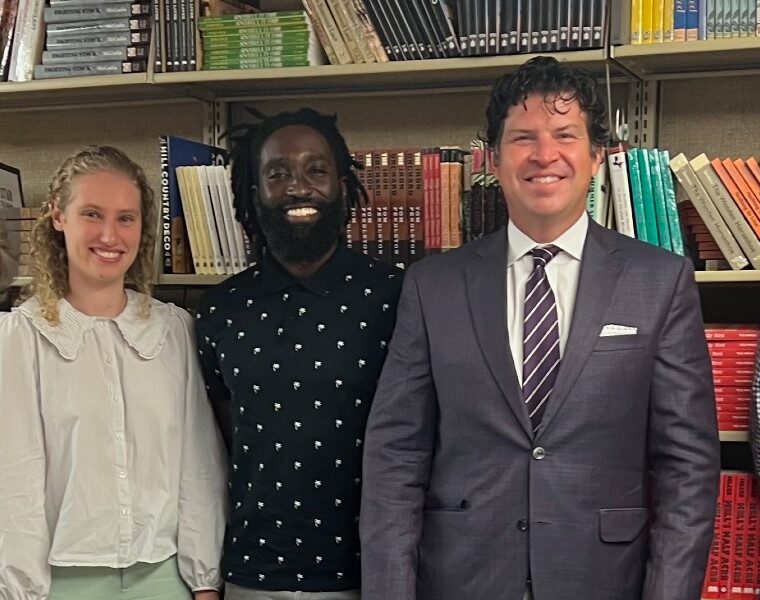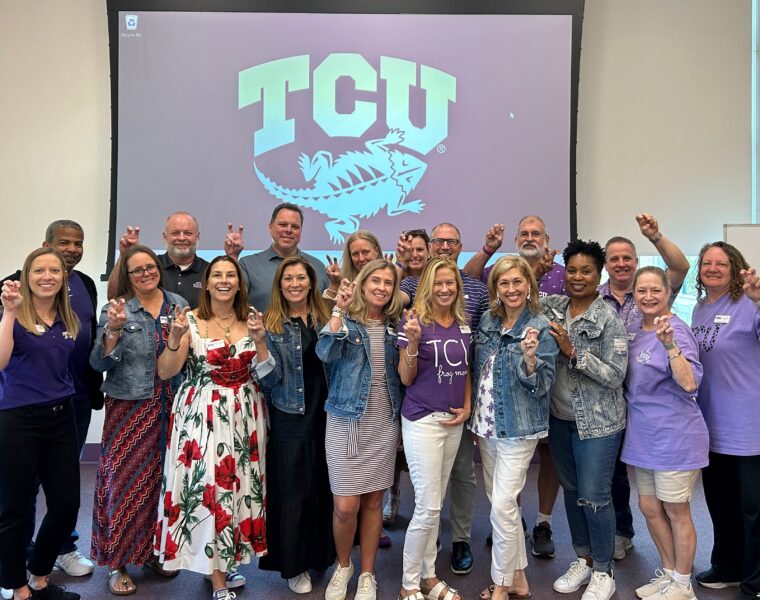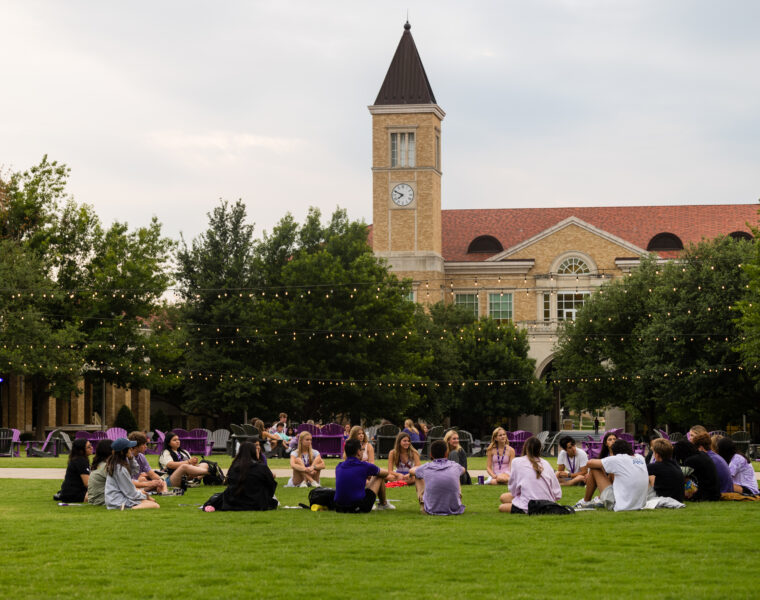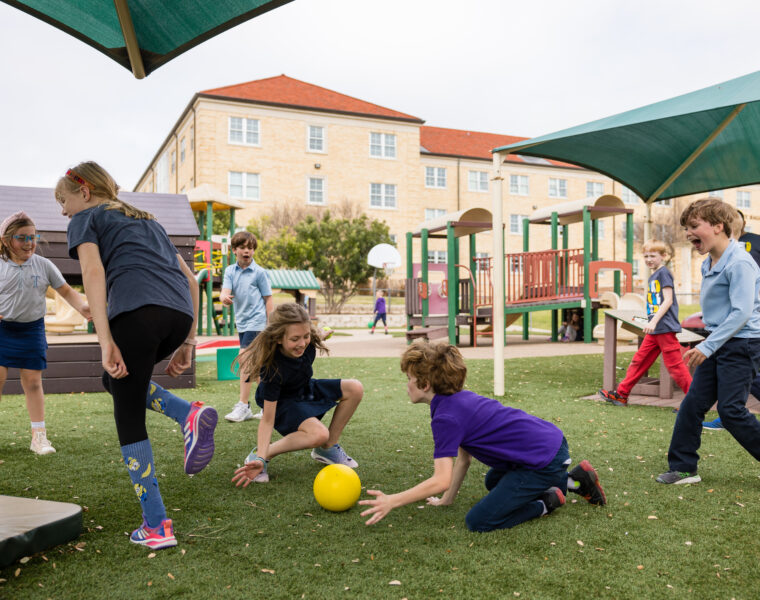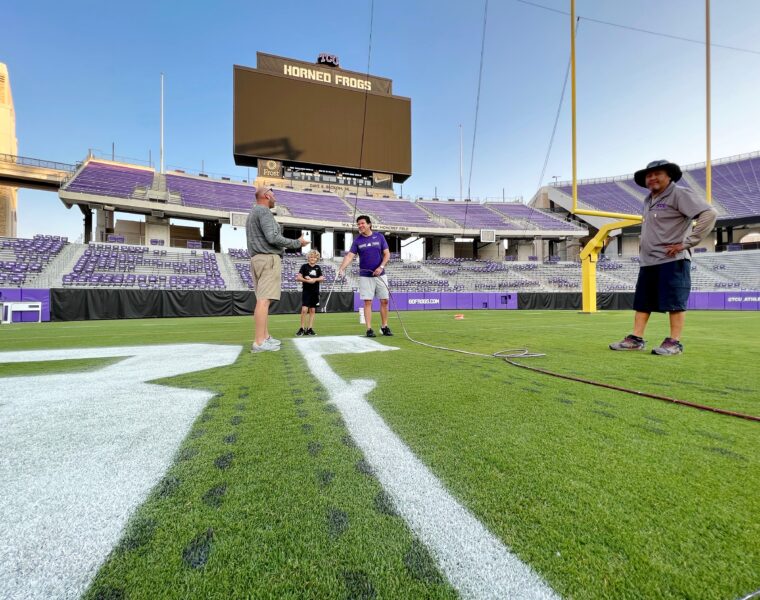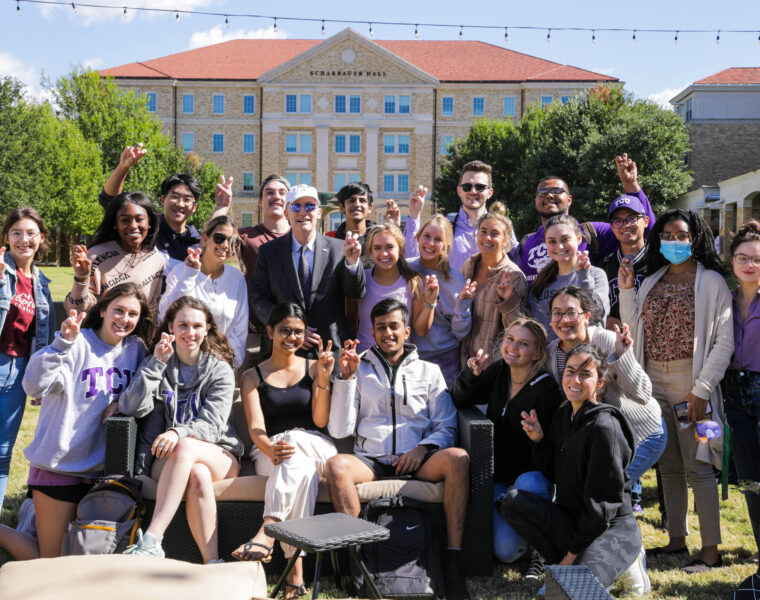Dear Horned Frogs,
Visiting different departments and teams across campus allows me the opportunity to be a student again. And I love it! You are talented, smart, innovative and passionate, and I’m always learning something new.
Inside the lab of Dr. Omar Harvey, associate professor of Geological Sciences and principal investigator of the Fundamental Research on Geomaterials and Geomimicry (FROGG) lab, I learned about his team’s innovative research and impact. Here are four key takeaways:
1. Research is the key to solving the Earth’s biggest challenges – and we’re doing this now at TCU. Dr. Harvey and his team of post-doctoral scientists and graduate and undergraduate students are focused on research to address some of the biggest challenges we face in climate, energy, food, air, and water pollution. For example, they are discovering how to capture harmful carbon emissions and return them to the ground where they can be beneficial to the Earth.
This is only one of countless examples of talented faculty engaged in research and creative activity at TCU. If you are curious about other projects, check out Endeavor’s, TCU Magazine’s research-focused publication.
2. Lab space and equipment are critical now – and will continue to be in the future. The FROGG lab supports advanced instrumentation for student learning and research that isn’t commonly found. (For example, the Fourier-Transform Infrared (FTIR) Spectrometer pictured below is useful in identifying the properties of the geomaterials.) Dr. Harvey’s lab, which was founded primarily to offer students hands-on experience with advanced research, uses various instruments and methods to investigate the interactions of organic and inorganic substances with minerals and oxides. As we think about campus master planning and how to support our students and faculty best, we know that academic spaces and resources are a critical component of planning for the future.
3. TCU has many stories to tell about community impact. Dr. Harvey’s lab is another fantastic example of Horned Frogs making an impact on our community. The lab achieves education and outreach goals through its Community-STEM (C-STEM) initiative and partnerships with local K-12 schools that engage students in science. This is a win-win: vitally important for our students as they learn through service and for our community.
4. Collaboration is essential. The more I meet with different faculty members across campus and learn about their research and expertise, the more opportunities I see for collaboration and innovation. Horned Frogs have an entrepreneurial spirit at their core. Combining our knowledge and working together will help us achieve the results we want in the classroom, with our students and in our research and creative activities. And the more diversity of thought, background and expertise we can bring together will lead to even more opportunities to broaden our impact.
I’m proud of the work taking place in the FROGG lab and I’m looking forward to visiting more labs and classrooms. You never cease to inspire me, Horned Frogs!
Lead On,
Daniel W. Pullin
President
